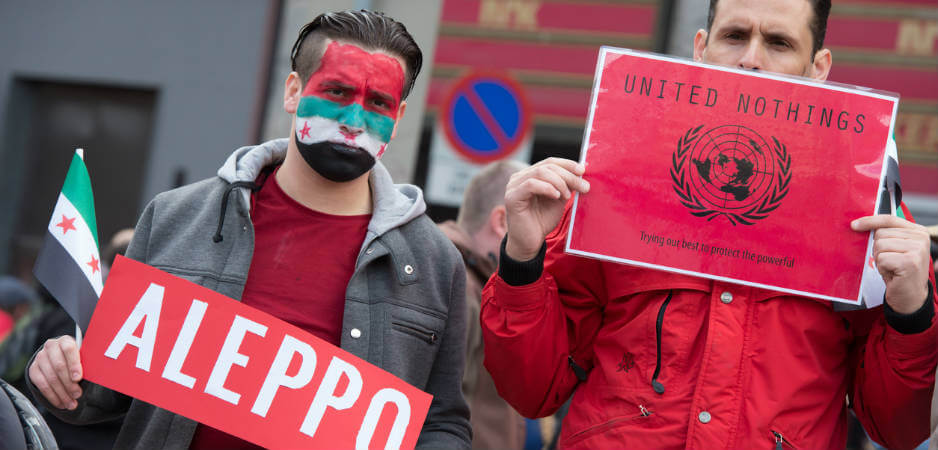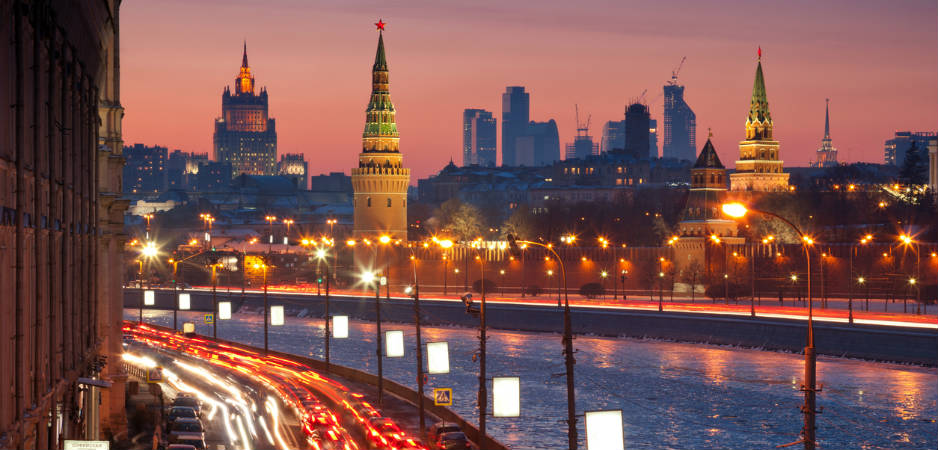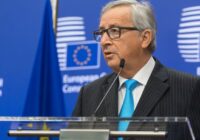Poles protest as their conservative government dilutes the independence of the country’s institutions and puts fetters on the press.
This week, much of the world was agog over Christmas, a day when a child was born in the modern-day Palestinian town of Bethlehem. When the child grew up, the Romans supposedly nailed him to a cross and he died. This Palestinian was not one to go down quietly though. Having walked on water before, he rose up from the dead and the rest, many would say, is history.
Agnostics from sinful pagan cultures may not believe in Jesus or that he ever existed, but even they like certain elements of the story. After all, turning the other cheek is not an entirely useless idea. It may not work all the time, but Mahatma Gandhi did pull it off against the biggest empire in history.
Christmas has not always been peaceful though. In 1989, a firing squad shot dead Nicolae Ceaușescu and his wife for crimes against the state. Ceaușescu had been president for 21 years and a rather bloody one. So, many Romanians saw his death as deliverance from the communist Satan.
It was on Christmas that Mikhail Gorbachev resigned in 1991, breaking up the Soviet Union. Many Christians see the death of Ceaușescu and fall of the Soviet Union as divine comeuppance for a godless society. For many Americans and far too many evangelicals, communists were evil incarnate, and it was only natural that the “evil empire” should fall on Christmas.
This week, Jesus is smiling rather kindly on Wall Street if not the rest of the United States. Stocks reached record highs and the dollar rose to a 14-year high. Oil prices also soared to a 17-month high. Many investors are euphoric after Donald Trump’s victory. His promise of tax cuts, infrastructure spending and deregulation is sweet music to their ears. Happy days might be here again.
Unfortunately, Damascus residents are unlikely to see happy days anytime soon. Rebels polluted the water with diesel and authorities had to cut off supply. Despite the discomfort of Damascus denizens, the Syrian regime had a lot to cheer about. Russians, Iranian militias and Hezbollah are helping them hammer rebels even as US forces help Iraqi troops retake Mosul from the Islamic State.
It is certainly an eventful time before Christmas. Yet it is Poland that takes center stage this week. On December 22, Jaroslaw Kaczynski, the big boss of Poland’s ruling party, mocked an inquiry by the European Union (EU) into the state of Polish democracy as “an absolute comedy, because there is nothing going on in Poland that contravenes the rule of law.”
The EU inquiry is a “long fall from grace” for Poland. This heroic nation played a mythical role in opposing Soviet-style communism. Brave Lech Wałęsa inspired Solidarity, a trade union of workers in Gdansk’s shipbuilding pant, to strike against the dreaded communist regime. The year was 1980. Ronald Reagan and Margaret Thatcher were leading their Anglo-Saxon democracies. Capitalism was good. Communism was evil. Solidarity was proof of that fact.
At home, Solidarity became the lightning rod for the national will of 10 million Poles who wanted cultural, economic and political freedom. Wałęsa emerged as a unifying leader who transformed a trade union into a mass movement that would ferociously oppose the communist regime until it eventually collapsed.
In the eloquent words of Adrian Karatnycky, Wałęsa was “an electrician with the common touch” who exhibited “leadership, wit and the capacity to work” with Poland’s best minds for the freedom of his country. The electrician rallied “the lathe workers, the stevedores, the miners, and the railwaymen” in plainspoken Polish to “shut down the self-declared workers’ state.” Poland’s communist regime never quite recovered from the body blow Wałęsa struck. A decade of mass protests and industrial strikes followed.
Outside Poland, a favorite son was making waves around the world. In 1978, Karol Józef Wojtyła became Pope John Paul II and many give him much credit for the fall of communism. John Paul II’s charm, charisma and nonstop travel made him a global celebrity. For centuries, the Polish Church has been “a bastion of spiritual power” and home of resistance as Poland has suffered “humiliations and partitions.” Unsurprisingly, the Polish pope turned out to be a canny and formidable foe to communism.
In 1979, Wojtyła or John Paul II rocked up in Poland to a rock star’s reception. Church bells rang when he landed in the country. He crisscrossed Poland, “deluged by adoring crowds.” John Paul II preached 32 sermons in nine days and millions poured out on the streets to listen to him. He “spoke of human dignity, the right to religious freedom and a revolution of the spirit.” It is fair to say that the Polish pope stirred his nation’s soul.
Some regard John Paul II’s 1979 visit as the touchpaper that sparked the Solidarity revolution and changed the course of history. Oxford historian Timothy Garton Ash once remarked, “Without the Pope, no Solidarity. Without Solidarity, no Gorbachev. Without Gorbachev, no fall of Communism.”
As with all stories, the ones about Wojtyła and Wałęsa are only part true. Wojtyła might have been charismatic, but he was fundamentalist when it came to abortion, contraception and euthanasia. For him, these promoted a “culture of death” and the “contraceptive mentality” was “evil.” As John Paul II, Wojtyła urged abstinence and marital fidelity to stop the spread of AIDS, and he forbade condoms. At a time when the HIV epidemic was raging in many parts of the world, his sanctimonious moral position led to many avoidable deaths. Wojtyła also turned a Nelson’s eye to rampant child abuse in the church. Critics still maintain that the late pontiff was “no saint but a man who covered up sin.”
Like Wojtyła, Wałęsa was an imperfect human being with warts and all. From 1990 to 1995, he was an ineffective president who “fell out with most of his former union colleagues.” Instead of independent and intelligent advisers, Wałęsa preferred “card-playing, incompetent sidekicks.” It is largely thanks to Wałęsa’s incompetence that former communists returned to power. Yet more damaging news has emerged. In the 1970s, before Wałęsa became the great worker-leader challenging communist apparatchiks, he was an informant for the communist security services.
 Simple-minded Americanos who glamorize Poland and see life as a Manichean struggle between good and evil beware. Adam Michnik, a powerful Polish intellectual, rightly pointed in a classic 1997 article that “gray is beautiful” in his analysis of democracy in formerly communist Europe. Even in places like the US, Britain and France, “moral ambiguity and moral compromise are part of the give and take of democracy.” Yet it is also true that there are darker shades of gray, and Poland is slipping into them.
Simple-minded Americanos who glamorize Poland and see life as a Manichean struggle between good and evil beware. Adam Michnik, a powerful Polish intellectual, rightly pointed in a classic 1997 article that “gray is beautiful” in his analysis of democracy in formerly communist Europe. Even in places like the US, Britain and France, “moral ambiguity and moral compromise are part of the give and take of democracy.” Yet it is also true that there are darker shades of gray, and Poland is slipping into them.
On October 25, 2015, the Law and Justice party won the parliamentary elections in Europe’s sixth largest economy. Led by Jarosław Aleksander Kaczyński, the party is socially conservative and Euroskeptic. He is the brother of the late Lech Aleksander Kaczyński who served as president from 2005 to 2010, dying in a plane crash in Russia along with many of the country’s top leaders.
Kaczyński aims “to complete what he sees as the unfinished revolution of 1989.” He wants to cleanse Poland from corruption and the influence of aging former communist apparatchiks who took over again once Wałęsa failed. Therefore, he is changing personnel in supposedly independent institutions such as the security services, the constitutional court, the civil services and public broadcasting. Kaczyński is not terribly fond of Germany, which is understandable given Poland’s tortured past.
The conservative leader does not like migrants either. Apparently, they carry “various diseases” and he vigorously opposes plans by the EU to relocate refugees in his country. In some ways, Kaczyński is only reflecting public sentiment in a democracy. In 2015, thousands of Poles marched in many cities chanting “Today refugees, tomorrow terrorists!” and “Poland, free of Islam!” Yet Kaczyński does not just reflect anti-immigration sentiment. He stirs it.
As of 2015, up to 2 million Poles lived in other EU countries. Remittances from them benefit the Polish economy significantly. When it comes to immigrants, Poles are nervous. In a June 2016 study, the Migration Policy Institute found that Poles have many fears when it comes to outsiders. “Cultural fears based on a loss of control over the markers of one’s identity” and “social fears stoked by rapid change following an influx of newcomers” haunt many Poles. Of course, they also have “economic fears about the distribution of public resources” and “political fears … that supranational bodies are eroding national sovereignty.”
Poland is not alone in suffering from such fears. Since 2010, Hungary has placed its trust in Prime Minister Viktor Orbán, a right-wing leader who finds “migrants” to be poison and frets about the threat to Europe’s “Christian roots.” In May, Austria nearly elected Norbert Hofer, a far-right leader, as president. Britain has opted for Brexit, the US has voted in Trump and France is flirting with Marine Le Pen. In Russia, Vladimir Putin has tightened his iron grip on power and Turkish President Recep Erdoğan is following suit. This is certainly the age of “the global rise of the far right,” and the heroic Poles are proving to be no exception to the zeitgeist.
Yet not all Poles are fans of the Kaczyński regime. This staunchly Catholic country is still haunted by Wojtyła or Saint John Paul II. In October, 100,000 demonstrators, mainly women, took to the streets to protest a near-total ban on abortion that parliament was close to passing. In the words of the BBC, “abortion is already mostly banned.” They are only allowed in case of “severe and irreversible damage to the foetus, a serious threat to the mother’s health, or when pregnancy is the result of rape or incest.”
As invariably happens when such bans are put in place, illegal abortions have shot through the roof. Conservatives estimate them to be between 10,000 and 250,000. For many conservatives, even this ban was not enough. They wanted a total ban, including in cases of rape and incest. The Catholic Church that once jailed Galileo Galilei and burnt Giordano Bruno heartily approved. In the face of protests, both clerics and politicians retreated, but the tussle over abortion captures the deep divides in the nation.
Early this month, Poles marked the anniversary of the 1981 imposition of martial law with marches. Thousands showed up in the streets to protest against the conservative government. Kaczyński denounced the opposition as “anti-state.” Ironically, many members of the ruling party were once members of the Solidarity movement that the communists denounced similarly and set out to crush in 1981.
The protests have continued in the festive season. On December 18, crowds gathered outside the presidential palace and then marched to the parliament. They were calling for press freedom and protesting “government plans to restrict journalists’ access to parliament.” In parliament, the opposition blockaded the parliamentary plenary chamber, forcing the government to vote in another room on the 2017 budget. It is the first time since 1989 that the budget vote took place outside the main chamber of parliament. Kaczyński accused the opposition of breaking the law, and his interior minister has gone further and accused it of “attempting to stage a coup.”
Poland was long held up as a model for transformation from communism to democratic rule. Now, it is triggering fears in other European capitals that it is sliding into authoritarianism. The EU has opened a formal inquiry into the rule of law in Poland. Polish nationalists see this as overreach by pesky unelected bureaucrats in Brussels. Wałęsa, the old warhorse, wants Brussels to “throw Poland out of the EU.”
Kaczyński and Wałęsa are former comrades who have turned into bitter rivals. Kaczyński sees the former Solidarity boss as a man with “great intellectual deficits, character defects and a terrible past.” He blames Wałęsa for “a deal that allowed the communists to exchange political power for being allowed to hang onto their economic gains.” Poland grew rapidly but left behind too many people. It is these losers of the transformation to capitalism that support Kaczyński. The conservatives won both the presidential and parliamentary elections promising generous social spending.
In some ways, Kaczyński is quite like the old communists he once fought. He is an authoritarian paternalist leader who wants the state to deliver more welfare in exchange for less dissent. The big difference perhaps is that Kaczyński prefers Jesus and the Bible to Karl Marx and The Communist Manifesto. In 1849, a Frenchman cleverly remarked, “the more things change, the more they stay the same.” Even as protesters march for freedom and democracy, Jean-Baptiste Alphonse Kerr’s words ring true.
*[You can receive “The World This Week” directly in your inbox by subscribing to our mailing list. Simply visit Fair Observer and enter your email address in the space provided. Meanwhile, please find below five of our finest articles for the week.]
Oh My God… The Russians Are Spying
In America, it’s a case of what we know, what we don’t know and what we don’t have the right to know.
In 1966, a movie was released titled, The Russians Are Coming, The Russians Are Coming. Exactly 50 years later, the battle cry appears to have morphed into: “The Russians have been here, or so it seems, and we’ve just noticed it, or we think we have. Now let’s do something about it.” In an era in which all information passes through the cloud, at the risk of plagiarizing an anonymous 14th century mystic, we might title this year’s remake, The Cloud of Unknowing. A fitting title for a film starring a self-identified “unpresident.”
The Russians were here. Or were they? And what was their motive? Seventeen intelligence agencies recently claim that it was not just to undermine the US election process, as they originally believed, but to elect Donald Trump. Or could the motive have been… Read more
The Failures of Aleppo Will Haunt Us All
People of Aleppo are suffering from a lack of political will to take decisive action among the world’s powerful countries.
The fall of Aleppo, and the horrific bombing campaign that has including the targeting of schools and hospitals, has been compared with the atrocities of Srebrenica, Rwanda and the destruction of Stalingrad. Despite these comparisons, and the pleading of trapped Syrians for international help that have filled our screens, there was no concerted international action.
Why was no help for the people of Aleppo forthcoming? Principally because of a lack of political will to take decisive action among the world’s powerful countries. It is the permanent five members of the United Nations Security Council who have especially failed. This is the body set up post Second World War to protect global peace and security, but in Syria members of the Security Council are playing an active role and backing different sides in the conflict. The narrow focus on… Read more
Standing Up to the Dakota Access Pipeline
Protesters at Standing Rock keep up the resistance to the Dakota Access Pipeline.
The conflict over a section of the Dakota Access Pipeline (DAP), along with other pipelines quietly approved in Texas and back in June in Iowa, poses pressing issues ranging from indigenous rights and landscape preservation, to the prevention of pollution of waterways and the commodification of drinking water, to climate change and energy independence.
While the DAP pipeline was marketed as a way of relieving America from dependence on foreign fossil fuels, in actuality the pipelines will siphon crude oil for export. And while Native Americans, namely the Standing Rock Sioux tribe of North Dakota, initially agreed to the pipeline as a source of economic development, promises of responsible construction were broken as historic sites were bulldozed, including sacred burial grounds, which had just been discovered and were under review by the state historic preservation office. The Sioux were excluded from consultations throughout the rest… Read more
Aiming at Russia, West Shoots Itself in the Foot
When it comes to Europe’s dealing with Russia, there is a strong temptation to weigh individuals according to their pro- or anti-Moscow credentials.
On December 12, Russian Foreign Minister Sergey Lavrov was in Serbia with an invidious task to fulfil: convince Belgrade that Russia wants closer cooperation between the two countries while denying allegations it launched a coup attempt against neighboring Montenegro from Serbian soil. Ostensibly there to attend a meeting of Black Sea foreign ministers, Lavrov’s arrival comes just weeks after Serbia reportedly expelled several Russian citizens for their part in attempting to overthrow the Montenegrin government last October.
But a closer look at the allegations reveals a startling fact: that in its quest to counter Russia by sanctifying a host of what appear to be anti-Russian figures, the European Union (EU) has gone astray—and not just in Montenegro. The circumstances surrounding the alleged coup attempt remain murky—murky enough for some commentators to argue that… Read more
Japan’s Media: A Narrow Window on the World
Media in Japan focuses heavily on domestic affairs, affecting the country’s global outlook.
Our world is becoming increasingly interconnected in a multitude of ways, and advances in information and communication technologies have made the gathering and dissemination of information at a global level rapid, simple and highly cost-effective. One might have anticipated that such developments would have boosted our access to world news, as it now has increasing relevance and is easier to obtain. Sadly, this has not been the case. Coverage of world news (in the US media at least) has in fact decreased with the end of the Cold War and has not really recovered since.
And there is a host of other issues, beyond the overall quantity, that need to be considered when looking at how well the news media is performing in its provision of information about the world. Geographic distribution is one such issue. There are typically large gaps in media coverage of… Read more
The views expressed in this article are the author’s own and do not necessarily reflect Fair Observer’s editorial policy.
Photo Credit: Fotorince
Support Fair Observer
We rely on your support for our independence, diversity and quality.
For more than 10 years, Fair Observer has been free, fair and independent. No billionaire owns us, no advertisers control us. We are a reader-supported nonprofit. Unlike many other publications, we keep our content free for readers regardless of where they live or whether they can afford to pay. We have no paywalls and no ads.
In the post-truth era of fake news, echo chambers and filter bubbles, we publish a plurality of perspectives from around the world. Anyone can publish with us, but everyone goes through a rigorous editorial process. So, you get fact-checked, well-reasoned content instead of noise.
We publish 2,500+ voices from 90+ countries. We also conduct education and training programs
on subjects ranging from digital media and journalism to writing and critical thinking. This
doesn’t come cheap. Servers, editors, trainers and web developers cost
money.
Please consider supporting us on a regular basis as a recurring donor or a
sustaining member.
Will you support FO’s journalism?
We rely on your support for our independence, diversity and quality.











